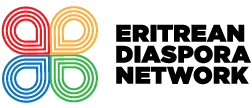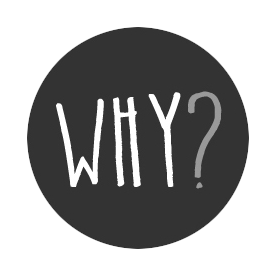Eritrean diaspora communities are in crisis. During the thirty-year struggle for national liberation, an entire of generation of diaspora-based Eritreans mobilized behind a collective goal, devoting money, time, and in some cases even their lives, toward the realization of an independent Eritrea. This collective effort was a truly stunning achievement, and produced a social cohesion that became one of Eritrea’s most valuable national assets. Yet all this has changed; the cohesion and good will of the struggle era have largely disappeared. Today, acrimony, division, and political gridlock, permeate most aspects of Eritrean diaspora life.
There is no better illustration of the erosion of the Eritrean diaspora’s much-vaunted unity than the politicization of our social space. In the last 15 years, rivalry between the government and its staunchest critics, have infected our churches, mosques, community associations, and in some cases, even our familial relations and friendships. Diaspora-led initiatives designed to promote Eritrea’s progress and development often possess a clear partisan tinge, and channel most of their energy toward vilifying their political opponents, instead of encouraging inclusivity and national unity. Even seemingly apolitical elements of our social affairs, such music and entertainment, have fallen victim to the political acrimony of the day. At the present time, there is no venue, no reasonable outlet, where diaspora Eritreans can find refuge from the deeply partisan state of Eritrea’s present politics.
As a result, many young Eritreans in the diaspora have chosen to disengage. Truly embracing our Eritrean identity means functioning, in a practical sense, as a member of a community. Yet many see the costs as too high, and the dividend as too uncertain. Why engage issues facing Eritrea and its diaspora when it will likely devolve into partisan mudslinging? Why expend energy on building Eritrean communities when our efforts will be sabotaged or subsumed by opposing Eritrean political forces?
This is a profoundly dangerous development: for Eritrea, its diaspora, and the symbiotic ties that link them together. We are now at a breaking point, and a critical intervention is needed.
It is against this backdrop that three individuals from the Washington, DC area, came together to found the Eritrean Diaspora Network. Reaching out to their friends and colleagues in the area, the three sought to build an organization that could mobilize young diaspora Eritreans around the most pressing issues facing the Eritrean community. Unlike previous efforts to build diaspora-based youth organizations, EDN was to be insulated from the partisanship and political rancor of the day: this organization would appeal to all to all sectors of the Eritrean diaspora, offering a “third-way” that could revitalize the old liberation-era tradition of unity, solidarity, and collective progress.
EDN’s emergence was the result of a highly organic process. The first meetings focused on creating open dialogue between the roughly 30 participants. This was a truly democratic effort, in which all voices were to be heard. Guided by the organization’s founders, we quickly agreed on two important principles that continue to guide EDN to this day: that we were all deeply committed to Eritrea and invested in our Eritrean identities, and that EDN’s “third-way” was critical to preserving the emotional and pragmatic links between Eritrea and the 1/3rd of its population that reside beyond the country’s borders.
Still in its early stages, EDN’s non-partisan, inclusive approach to community building is already being put into practice. In November 2013, we sought to mobilize Eritrean’s of all political stripes around the issue of human trafficking in the Sinai, a problem that has wreaked havoc on the fabric of Eritrean society, and will likely leave scars for a generation. Our first event was a well-attended fundraiser for trafficking victims, and we plan to build on our early momentum by holding additional events that focus attention on this issue throughout 2014-15.
If you are interested in constructing social space where we are all Eritreans, where members leave their political affiliations at the door, and we all are committed to progress, we strongly urge you to consider supporting EDN’s unique and evolving efforts. We can only do this together. The future of Eritrea demands it!


I would just like to begin with saying that I love the story behind the makings of this organization and its mission to unifying the diasporic youth of Eritrea.
My only concern is though, your actual definition of this “third-way” and how you plan on using it to collectively face these “pressing issues” in a non-partisan manner when the root of these issues are all political to begin with?
Nonetheless, I can say I am inspired by the vision of EDN and hope to see it come to fruition in the nature it’s creators imagined it to be.
S.
Thanks S for the encouragement! Politics is a very divisive issue in our community. As EDN we found that we are all from the different spectrum of the Eritrean political rainbow. There are many things we all actually collectively agree on and we choose to focus and build our community based on those factors.